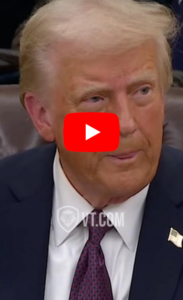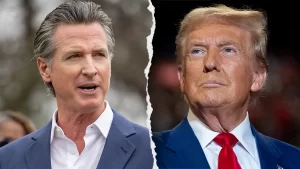
It’s 2024 and yes, I’m amazed Joe Biden is still alive let alone in office. It’s beginning to become clear that the powers that be are going to allow this dementia ridden old pervert to continue bumbling around the White House and anywhere else he’s required to make an appearance until he drops dead. Doesn’t this guy want a few years post-presidency to retire somewhere quiet and nice so he can live out his days in peace?
What Does The Constitution Say About Mental Deficiency While In Office?
What exactly is the protocol when a president becomes mentally unstable during his term? Let’s unpack this a bit and look at some examples from our history.
1. Formal Constitutional and Legal Processes in the United States for Addressing Presidential Incapacity
The primary mechanism for addressing presidential incapacity in the United States is outlined in the 25th Amendment to the U.S. Constitution. Here’s a detailed breakdown:
Section 1: Succession of the Vice President
- If the President is removed from office, dies, or resigns, the Vice President becomes President.
Section 2: Vacancy in the Office of the Vice President
- If there is a vacancy in the office of the Vice President, the President nominates a new Vice President who takes office upon confirmation by a majority vote of both Houses of Congress.
Section 3: Voluntary Transfer of Power
- The President can voluntarily transfer power to the Vice President by submitting a written declaration to the President pro tempore of the Senate and the Speaker of the House of Representatives. The Vice President then serves as Acting President until the President submits a written declaration stating they are able to resume their duties.
Section 4: Involuntary Transfer of Power
- This section addresses situations where the President is unable or unwilling to declare their own incapacity. The Vice President, along with a majority of the principal officers of the executive departments (the Cabinet), can submit a written declaration to the President pro tempore of the Senate and the Speaker of the House, stating that the President is unable to discharge the powers and duties of the office. The Vice President then becomes Acting President.
- If the President contests this declaration, Congress must decide the issue. If two-thirds of both Houses agree the President is unable to discharge their duties, the Vice President continues as Acting President. Otherwise, the President resumes their duties.
2. Historical Examples of How Mental Instability in a President Has Been Handled
Woodrow Wilson (1919)
- After suffering a severe stroke in 1919, President Wilson was left incapacitated for the remainder of his term. First Lady Edith Wilson essentially managed the office’s responsibilities, determining which matters were important enough to bring to the President. This led to a de facto stewardship, as there were no formal mechanisms like the 25th Amendment at that time.
Ronald Reagan (1981)
- Following the assassination attempt on Reagan, there was concern about his ability to perform his duties while recovering. Though he remained capable of discharging his duties, there were discussions about invoking the 25th Amendment. However, this was never formally enacted.
3. Comparisons of Protocols in Different Countries Regarding the Mental Incapacity of Their Leaders
United Kingdom
- In the UK, there is no formal constitutional procedure akin to the 25th Amendment in the U.S. The Prime Minister could potentially be replaced by party mechanisms or a regency could be established in extreme cases, but these processes are largely ad hoc.
Germany
- The German Basic Law (Grundgesetz) provides for the President of the Bundestag (parliament) to act as interim President in case of incapacity. The Chancellor could be replaced by a vote of no confidence if they were deemed unfit to serve.
France
- In France, the Constitution allows for the temporary incapacitation of the President, with the President of the Senate assuming the role temporarily until the Constitutional Council decides on the President’s ability to resume duties.
Russia
- In Russia, the Constitution stipulates that if the President is unable to perform their duties, the Prime Minister assumes the role of Acting President until new elections are held.
4. An Analysis of Political Theories Relevant to Leadership and Mental Health
Trait Theory
- This theory emphasizes the importance of certain traits in leaders, such as cognitive ability and emotional stability. A leader’s mental instability could significantly impact their effectiveness, decision-making, and the overall stability of the political system.
Contingency Theory
- This theory posits that the effectiveness of a leader is contingent upon how well their style matches the situation. In cases of mental instability, the situational demands may necessitate a different leadership style or even a change in leadership to maintain governance stability.
Transformational Leadership Theory
- Transformational leaders inspire and motivate followers through a shared vision and personal charisma. Mental instability in such leaders could undermine their ability to inspire trust and maintain morale among followers, leading to a leadership crisis.
What Should Happen Next?
Addressing whether the United States should invoke the 25th Amendment on a sitting president, such as Joe Biden, due to concerns about dementia involves several considerations. Let’s break down the key aspects:
1. Medical Assessment
The first step would be a thorough medical evaluation by qualified professionals. Dementia is a serious medical condition that involves cognitive decline, memory loss, and impaired judgment. If there are credible concerns, an official medical diagnosis and evaluation would be necessary to determine the president’s capacity.
2. Political and Legal Mechanisms
The invocation of the 25th Amendment, specifically Section 4, requires a majority of the Cabinet and the Vice President to agree that the President is unable to discharge the powers and duties of the office. This is a significant and rare action that involves:
- Declaration of Incapacity: The Vice President and a majority of the Cabinet must submit a written declaration to the Speaker of the House and the President pro tempore of the Senate.
- Acting President: The Vice President immediately assumes the role of Acting President.
- Presidential Response: The President can contest the declaration, leading to Congress deciding the issue.
- Congressional Decision: If two-thirds of both Houses of Congress agree with the Vice President and Cabinet’s assessment, the Vice President continues as Acting President. Otherwise, the President resumes their duties.
3. Historical Context
Historical precedents show that invoking the 25th Amendment is an extraordinary measure, typically reserved for clear and severe incapacity. For example, the discussions during Reagan’s tenure after the assassination attempt highlight the caution and gravity with which such decisions are approached.
4. Political Considerations
Invoking the 25th Amendment is not solely a medical or legal decision but also a profoundly political one. It would involve:
- Bipartisan Support: Successful invocation typically requires bipartisan agreement, given the high threshold in Congress.
- Public and Media Reaction: Public perception and media coverage would play a significant role in shaping the political landscape around such a decision.
- Impact on Governance: The transition of power would need to be smooth to ensure stability in governance and continuity of policy.
5. Ethical and Moral Considerations
There are also ethical considerations regarding respect for the office of the presidency and the dignity of the individual. Ensuring that any action taken is based on genuine concern for the country’s well-being rather than partisan advantage is crucial.
Follow-Up Questions and Further Exploration
1. More Details on the Medical Criteria and Evaluation Process for Diagnosing Dementia in a Political Context
Understanding the medical criteria for diagnosing dementia involves specific steps and evaluations:
- Diagnostic Criteria: Dementia is typically diagnosed based on criteria from medical manuals such as the DSM-5 (Diagnostic and Statistical Manual of Mental Disorders) and ICD-10 (International Classification of Diseases).
- Cognitive Testing: Various cognitive tests (e.g., MMSE – Mini-Mental State Examination, MoCA – Montreal Cognitive Assessment) assess memory, attention, language, and problem-solving skills.
- Neurological Examination: A thorough neurological examination helps rule out other causes of cognitive impairment.
- Imaging and Labs: MRI or CT scans can identify brain changes, and lab tests can rule out other conditions that might mimic dementia.
- Psychiatric Evaluation: A detailed psychiatric assessment evaluates the impact of cognitive changes on behavior and functioning.
In a political context, a bipartisan, transparent, and highly credible medical team would need to be involved to ensure the integrity and trustworthiness of the evaluation process.
2. Historical Cases Where Similar Concerns Have Been Raised About Other Leaders
Examining historical cases provides insight into how different contexts and mechanisms were applied:
- Ronald Reagan: Concerns about Reagan’s mental fitness arose in his second term, partly due to his age and perceived memory lapses. While no formal action was taken, his health became a point of public and political discussion.
- Woodrow Wilson: As mentioned earlier, after his stroke, Wilson’s incapacity led to informal governance by his wife. This situation highlighted the absence of formal mechanisms at the time.
- Franklin D. Roosevelt: FDR’s declining health in his fourth term raised concerns, although the full extent of his illness was not publicly known until after his death.
3. Analysis of How the Media and Public Perception Can Influence the Decision to Invoke the 25th Amendment
The media and public perception play crucial roles in shaping the political climate:
- Media Coverage: Intense media scrutiny can amplify concerns about a leader’s health, driving public debate and influencing political pressure.
- Public Opinion: Public sentiment, as reflected in polls and public discourse, can sway legislators and Cabinet members’ decisions.
- Transparency vs. Speculation: Lack of transparency can lead to speculation and misinformation, while clear communication can help manage perceptions.
4. Deeper Look into the Political Dynamics and Potential Consequences of Invoking the 25th Amendment
The political ramifications of invoking the 25th Amendment are significant:
- Bipartisanship: The need for bipartisan support underscores the importance of the amendment being seen as a non-partisan tool.
- Power Transition: The transition of power must be managed to ensure stability and continuity in governance.
- Political Fallout: The invoking party may face backlash, potentially affecting future elections and party dynamics.
- Global Perception: Internationally, such a move could impact the country’s image and its relations with other nations.
5. Exploring Alternative Mechanisms or Safeguards to Address Concerns About a President’s Capacity
Considering additional or complementary mechanisms can provide further safeguards:
- Regular Health Assessments: Implementing mandatory, periodic health assessments for the president, conducted by an independent medical board.
- Transparency Measures: Ensuring greater transparency in the health status of presidents, possibly through regular public health updates.
- Legislative Oversight: Establishing a bipartisan congressional committee to oversee and review the health status and capacity of the president.
What Were We Talking About?
In conclusion, it seems there is a metric fuck-ton of red tape to deem this calamity unfit. Or perhaps they don’t want the first female president to be elected in by dementia-default. That wouldn’t be glorious at all. Likely, a move like this would upset some sensitive group out there and make the country even more of an embarrassment than it already has been with ol’ poopy Joe wondering around the international stage. No matter what happens, it would be nice to see it happen soon!
CHECK OUT OUR GIFT SHOP!
-
“Nice Shot, Asshole.” Donald Trump Glossy Coffee Mug
$10.00 – $11.00 $ -
Biden Blockers Case for AirPods®
$25.00 $ -
I May Be Crazy But at Least I’m Not a Democrat Hoodie
$48.00 – $52.50 $ -
Real Men and Real Women Bathroom Etiquette Long Sleeve Shirt
$21.00 – $25.50 $ -
My Son Says I’m a Crazy Democrat – CrazyDemocrat.com
$25.50 $ -
LIBERAL TEARS – CRAZYDEMOCRAT.COM
$10.00 – $11.00 $ -
How to Solve the Border Crisis – www.CrazyDemocrat.com
$10.00 $ -
Real Men and Real Women Bathroom Etiquette – CrazyDemocrat.com
$21.00 – $25.50 $ -
“I may be crazy…But at least I’m not a Democrat”
$48.00 – $52.50 $












